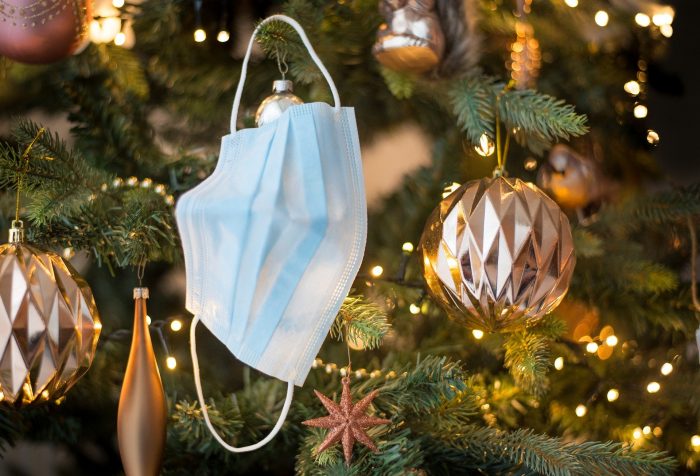Two of the most difficult and traumatizing hours of my life happened eight years ago, when my 40-year-old husband woke up on a ventilator after his open-heart surgery.
I never want him to go through this experience again.
If he catches this novel coronavirus, his chances of ending up in the hospital—on a ventilator—are extremely high. His chances of dying from complications from the virus are also greater than for most people. He’s had two more heart attacks, the third of which occurred during this past pandemic summer. And while he was fortunate to not need surgery again, his heart and lungs may not be strong enough to survive COVID-19.
It’s a risk we simply can’t afford to take.
The morning after his heart surgery, the ICU nurse told me he needed to be alert before they could take the breathing tube out. He needed to be able to cough and follow commands, which meant they had to stop the anesthesia that was sedating him and taking away all his pain.
I watched as he began slowly moving. His wrists were at his sides, wrapped in two cushioned cuffs and tied to the hospital bed rails. This was to keep him from grabbing the tube that was stuck down his throat and inflating his lungs on a regular rhythm—artificially breathing for him. As he tried to lift his hands, he opened his eyes and realized he was tied down. This awareness sent him into an instant panic. His beautiful blue eyes opened wide and gave me a terrified look that I’ll never forget. His eyes were pleading for me to help.
Please do something. This is torture. I’m in pain. Please do something.
My heart began racing, and I clasped his right hand in both of mine. I’ve never felt so helpless in all of my life. I tried to calm him, telling him exactly what was happening. I explained that he had to stay on the ventilator for 30 minutes to give his body time to shake off the anesthesia and make sure his lungs were functioning on their own.
The explanation didn’t work. He was fighting for control. He kept trying to talk; he kept trying to lift is arms.
I then began my own pleading. Through my tears I said, “Please find a happy place, baby. Find a way to distract yourself and zone out. Think of anywhere in this world you would rather be and go there. There is nothing I can do. There is nothing else to do. We have to wait.”
As the minutes slowly passed, I noticed occasional fat tear drops falling out of his eyes, while mine continued in an effortless flow, forming hot, salty riverbeds down my cheeks that never dried. I knew he was trying his best to remain calm, but every once in a while, he’d forget and try to speak or try to move his arms and panic would set in all over again.
My eyes were glued to the black and white clock on the wall, watching the second hand ticking slowly around until hearing the tock of the minute hand finally moving, constantly praying to God to give him strength to get through this next 30 minutes.
29 tick, 30 tock! Finally, it’s time! But there was no nurse to be seen.
31 tick, 32 tock. Ten more minutes went by, then 20. Thirty full minutes passed after the deadline the nurse told me would be the end. My eyes frantically darted from the clock to my husband, then to the door and back to the clock—over and over in the same furious and futile cycle.
I was desperate. And I felt like a liar. I had lied to my husband, promising him that it would already be over. I don’t normally experience anxiety, but in that moment, I had it full force, and I began to panic myself. When I finally saw the nurse, I lost my cool—something that I never do. I’m usually too afraid of confrontation to ever raise my voice to strangers—especially nurses, whom I respect immensely—but I vehemently needed to alleviate my love’s suffering. It gave me the courage to speak up.
I yelled out in a shaky, high-pitched voice, “You said only 30 minutes and it’s been over an hour! Please do your job and help him!”
Another 15 minutes went by before the nurse and a respiratory technician came into the room and finally removed the tube. The relief I experienced was instant. I came down from the adrenaline rush and prepared myself for the next hard task of many during his long recovery.
My husband had been given propofol, the same anesthesia drug that famously killed Michael Jackson. The drug made sense for what he’d just been through. He had triple coronary artery bypass surgery, meaning three arteries were blocked and not allowing enough blood to flow to his heart. His left main artery, aptly nicknamed “the Widow Maker,” was 99 percent blocked. He was lucky to have made it to the operating room when he did.
The surgery repairs the blocked arteries by taking other veins from the body and grafting them to the heart to bypass the blockages, which then restores blood flow. To complete a triple bypass, you have to expose the heart. This means his breast bone was sawed through and his rib cage was spread open. He was put on a heart-lung bypass machine along with a ventilator to function for these vital organs while his heart and lungs were temporarily out of commission.
It was a considerably scary surgery that lasted for about four hours which, thankfully, was less time than they predicted. I remember sitting in the waiting room while it was happening and getting text updates from the Operating Room (OR) nurse every step of the way. I was keeping friends and family informed as I got news.
I posted on Facebook, “Just got word from OR, my husband’s heart is being touched right now…this is so surreal!” And the next day I shared, “The morning after his surgery will probably be the hardest few hours I’ll ever have to witness in my life.”
I’ve been through hard things since then, but I was right. Nothing to this day has compared to the terror and suffering I not only witnessed, but felt myself that morning, all those years ago.
I miss my friends. I miss my family. I especially miss my grandchildren and nieces and nephews during this time of year. I know we can’t control everything that happens in our lives, but as the number of COVID cases, hospitalizations, and deaths continue to climb, listening to scientists and taking heed of the warnings not to gather indoors for the holidays with people outside of your household is certainly an easy instruction for me to follow.
I can, at least, control that.
If I’d never experienced what it was like for my husband to wake up on a ventilator, my actions today might be different. The memory carries me through my quarantine fatigue.
Staying away is a small price to pay to keep him and others safe.
~












Read 13 comments and reply